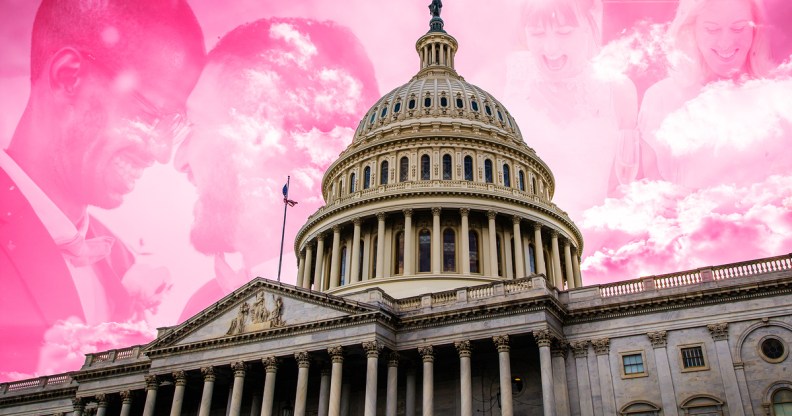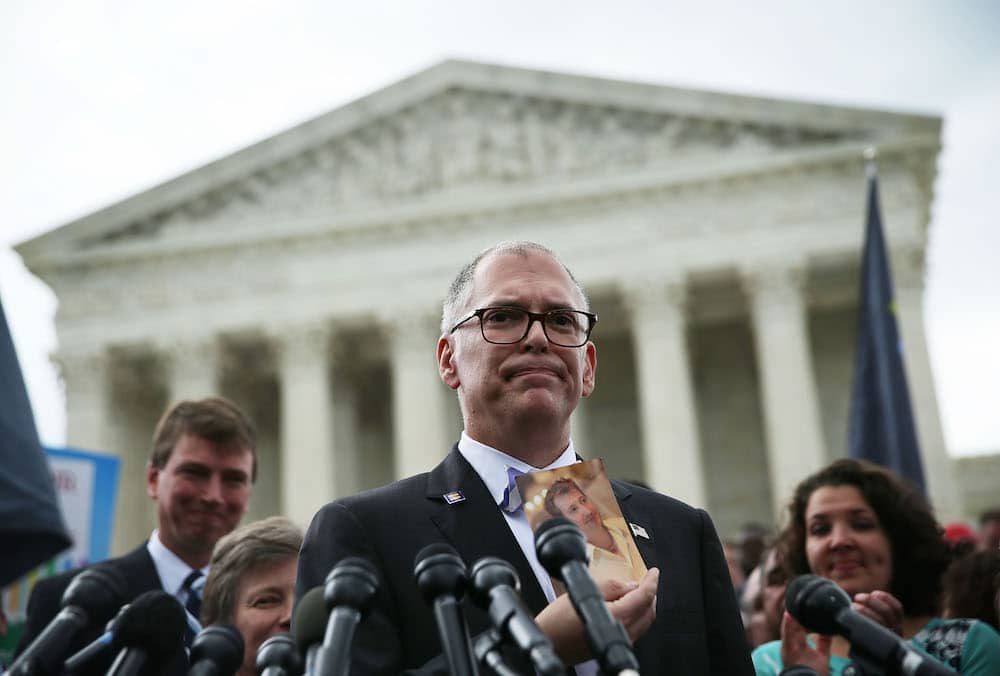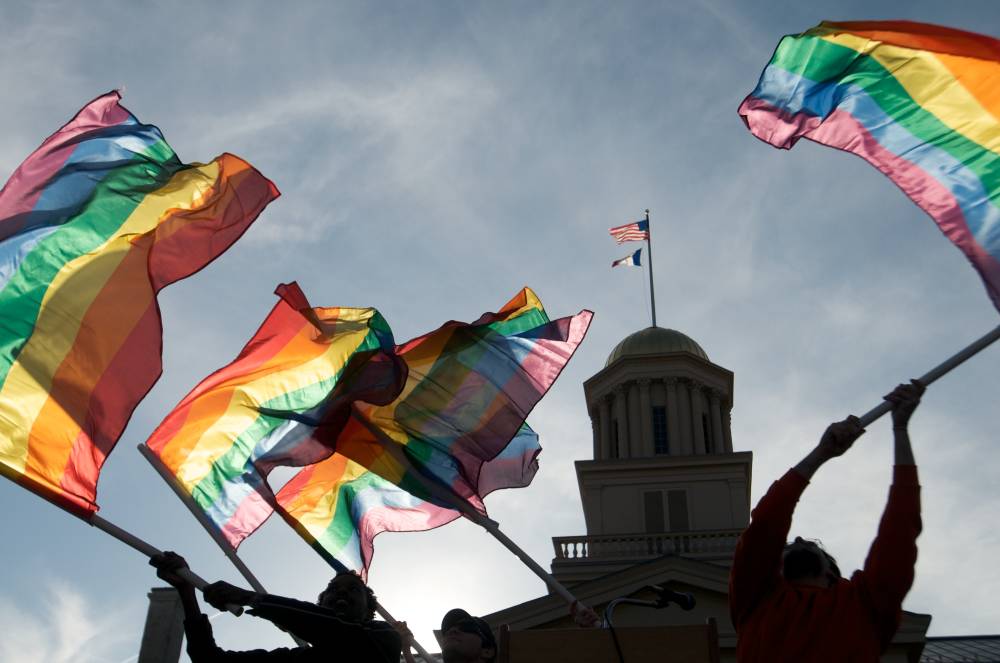US Senate passes Respect for Marriage Act – but activists say bill is a ‘huge mess’

The US Senate has advanced the Respect For Marriage Act. (Getty)
The US Senate has advanced the Respect For Marriage Act. (Getty)
The United States Senate has passed the Respect for Marriage bill, which aims to provide another step towards protection for same-sex marriage, however, activists have claimed the legislation is a “huge mess”.
The Senate voted 61 – 36 to pass the bill on Tuesday (29 November), with 12 Republicans also voting in favour.
Senate Majority Leader Chuck Schumer said before the vote: “Today, after many rounds of bipartisan talks and after many doubts that we could even reach this point, we are taking the momentous step forward for greater justice for LGBTQ Americans.”
He added that the first person he would call to celebrate would be his daughter Alison, who is in a same-sex marriage.
The Respect for Marriage Act would protect existing unions if the right to same-sex marriage was ever struck down by the Supreme Court in the future, which LGBTQ+ Americans feared after Roe v Wade fell in June.
Should that happen, marriage rights could potentially revert back to individual states, of which several still have same-sex marriage bans on their books, despite equal marriage being the law of the land since 2015.
The new bill also officially repeals the Defense of Marriage Act, a 1996 law that specifically defined marriage as only existing between a man and a woman. The bill has not been enforceable since 2013, however, and the new legislation takes it off the books.

The Respect for Marriage Act also assures that any marriage valid in the couple’s home state is considered valid by the US government and will be recognised by every state.
Biden welcomed the passing of the bill, claiming he is looking forward to “proudly signing it”.
He said on Twitter: “Today’s bipartisan Senate passage of the Respect for Marriage Act proves our nation is on the brink of reaffirming a fundamental truth: Love is love.
“I look forward to the House passing this legislation and sending it to my desk, where I will proudly sign it into law.”
Activists, however, have explained that the bill does not legalise same-sex marriage throughout the United States, and that if the Supreme Court overturned 2015’s Obergefell v Hodges decision to legalise same-sex marriage, 35 states would likely outlaw it again.
With the passing of this bill, future same-sex marriages aren’t offered protection, but existing marriages would have to be recognised throughout the country.
Journalist Nico Lang wrote in a Twitter thread: “The Respect for Marriage is a step, but it does not fully protect marriage equality. The 35 states that outlaw same-sex marriages will not be required to issue marriage licenses to LGBTQ+ couples. Instead, the bill compels them to recognise out-of-state marriages as valid.”
They added that in the event same-sex marriage falls in the Supreme Court, you would have to “drive to another state to get married” if you lived in a state like Mississippi, which would likely ban same-sex marriage if allowed.
“If you live in a state that still has a law or a constitutional amendment on the books restricting marriage as the union of ‘one man and one woman’, that will not change under the legislation,” they said.
“To be honest, the bill is a huge mess, and it’s hard to watch people praise it as historic… We need to recognise what the Respect for Marriage Act is and what it isn’t.”

The bill also has an amendment, accepted on Monday (28 November), which protects religious liberty, and confirms that no nonprofit religious organisation would have to provide goods, services, or facilities for same-sex wedding ceremonies or receptions.
Marcie Bianco slammed the religious amendment in an op-ed for NBC News, describing the bill as a “Trojan horse” to usher in further religious exemptions to same-sex marriage rules.
“At its worst, the legislation is a Trojan horse ushering in protections that allow religious institutions – from churches to mosques, religious nonprofits to religious schools – the right to refuse services, facilities and goods for any marriage ceremony or celebration. Effectively, this act codifies discrimination,” Bianco said.
Bianco added that the recent slew of anti-LGBTQ+ bills in the US means that queer Americans are “operating from such a profound place of fear and oppression” that they will “gobble up this bread crumb”.
Jim Obergefell, the lead plaintiff in the 2015 Supreme Court case that legalised same-sex marriage in the US, told the BBC he was “not all that pleased” with the Respect of Marriage Act.
He said that while he would rather have some protection than none at all, he was frustrated with the religious liberty amendment that allows religious organisations the right to refuse services for same-sex weddings.
“I don’t like it, but I’ll take it,” Obergefell said.
According to Gallup, 71 per cent of Americans now support marriage for same-sex couples.

